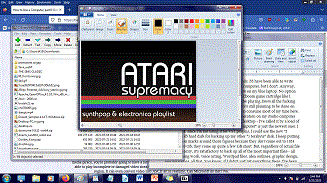

A computer is just a pile of electronics without something useful to run on it. Here is a list of must-have software for your first computer.
For the sake of simplicity, I'm assuming that you're using a setup that looks like this...
You may have more RAM, less storage space, a video card, a network adapter, whatever; but as long as you have at least these 6 things, you can use all of the software mentioned here.
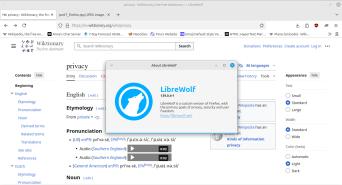
Librewolf.
librewolf.net
Linux compatibility: Full
This is the big, important program you need. As soon as your desktop is visible for the first time, go to LibreWolf.net, and download and install this browser.
LibreWolf is a fork of the more common browser, Mozilla Firefox, but focussed on privacy. uBlock Origin comes pre-installed and pre-configured for the widest array of use cases, though you will still need to install Privacy Badger and LocalCDN yourself. Being a fork of Firefox, it is similar enough to Mozilla's version that it can accept browser extensions from the Firefox Addons database. While I had been recommending Firefox here for a grand long while, I can't do that anymore— seeing as how Mozilla has integrated generative AI into mainline Firefox. This website is 100% opposed to the use of generative AI for any reason whatever, therefore LibreWolf is now the superior choice for internet browsers. Please be advised that LibreWolf will not update itself as Firefox will; see the install guide for details.

Mullvad
mullvad.net
Linux compatibility: Full
Mullvad is a VPN service, maintained by the Swedish company, Mullvad AB. Without going too much into the technical bits of VPNs, Mullvad is one of the better ones. You won't be able to use qBittorrent (if that was a concern for you) on Mullvad because it no longer supports Port Forwarding-- something having to do with botnets-- but I'm sure you're not going to use your new computer for piracy. You may be asking what you could possibly need a VPN for, because, "after all, I'm a law-abiding citizen, I have nothing to hide." It's privacy. Remember "privacy"? You can be a model citizen and still be entitled to absolute privacy on the internet. Your ISP doesn't need to know what you're looking up on Wikipedia, even if it's just the history of salt. Mullvad will provide that level of privacy, for a cheaper price than any streaming service. "Wait, it costs?" Yes. There's no such thing as "free VPN service". Mullvad service costs about $6 a month, and it doesn't automatically debit you for the next month. In fact, there's no way to make it do that because Mullvad AB receives payment and immediately destroys its record of your transaction. The proof of purchase is in the CRC hash you put into your install, not on their servers. See? Privacy! Anyway, I can do minutes on Mullvad and VPNs in general, but not here. Next!
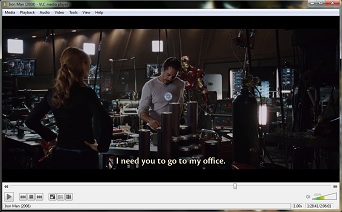
VLC media player.
videolan.org
Linux compatibility: Full
VLC media player (explicitly not "VLC Media Player") is objectively better than Windows Media Player in most respects. The only place I prefer WMP on Windows 7 is for MIDI sequences, but VLC has MIDI capability through FluidSynth (incidentally, the same MIDI mapper that GZDoom uses). The place VLCmp really shines is its support for MKV. If you're given to media piracy, you're probably going to have a lot of MKVs and nowhere to play them; VLC is there for you. It's also able to play incomplete or damaged video streams, obscure filetypes like *.BIK and *.MPG, and DVDs from any region.
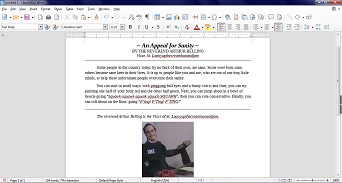
LibreOffice
libreoffice.org
Linux compatibility: Full (included in Linux Mint 22)
You may have heard that Google is using its AI process to decide if you're writing smut in Google Docs and then locking you out of your account (your entire Google account) if it thinks you are. You've thought about switching to a desktop-based word processor for years, but Microsoft Word is just another subscription service that you've got to pay monthly for. Enter The Document Foundation's free desktop publishing suite, LibreOffice. Impress is about as far away from PowerPoint as a dry-erase board is from a cave wall; it's similar, but missing major features. But, when it comes to word processing, Writer still serves as an excellent replacement for Microsoft Word and Google Docs; with none of Microsoft's insistence upon upgrading or Google's incessant monitoring. There was a concern about LibreOffice being used to train a proprietary AI process late last year, and I haven't been able to find a straight answer about that. If this is a concern, use version 7.5.9 instead of 24.2; you just have to scroll down the Downloads page a bit more.
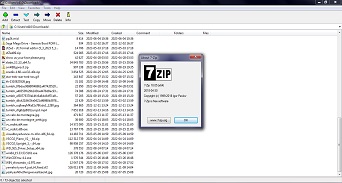
7-Zip
7-zip.org
Linux compatibility: unnecessary (Mint natively supports the 7z filetype)
Even though Windows has built-in support for *.ZIP files, 7-Zip is better. It's also the only way to create and open *.7Z files, which is a far better and safer file compression algorithm than ZIP. While 7-Zip can't make *.RAR files, it can open them, obviating WinRAR altogether for people who aren't interested in using RAR compression. There are a lot of fake 7-Zips out there, most of which either are or contain malware. The only place to get 7-Zip is from the project website, 7-zip.org. Even though the 7Z filetype already has native support in Linux Mint, the 7-Zip software does have a version compatible with Ubuntu-like Linux distros.
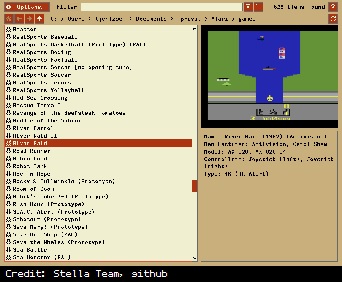
Stella
stella-emu.github.io
Linux compatibility: Full
Ever since Microsoft nuked Solitaire and Minesweeper, the most endearing bits of Windows dried up and blew away. Fortunately, simple desktop games are not totally out of the realm of possibility, especially given console emulators like Stella. The reason I'm recommending an Atari 2600 emulator instead of something more impressive, like a pirated version of The Elder Scrolls V: Skyrim, is that you don't need a gaming video card to play it. Also, you only need five buttons to play any given Atari game: the four arrow keys (or the WASD cluster), and the spacebar. Arrows to move, Space to fire. Maybe F2 to start the game if the spacebar doesn't do that. Simple. Of course, there was somewhere on the order of 700 games released for that system. If you're interested in Stella and want some way to narrow that down, I have a page on that subject.
This list should only be used as a starting point for the most generalised use case I can think of. Add things, leave things out, say "that's a good program but this one's better", exercise your agency as a computer user!